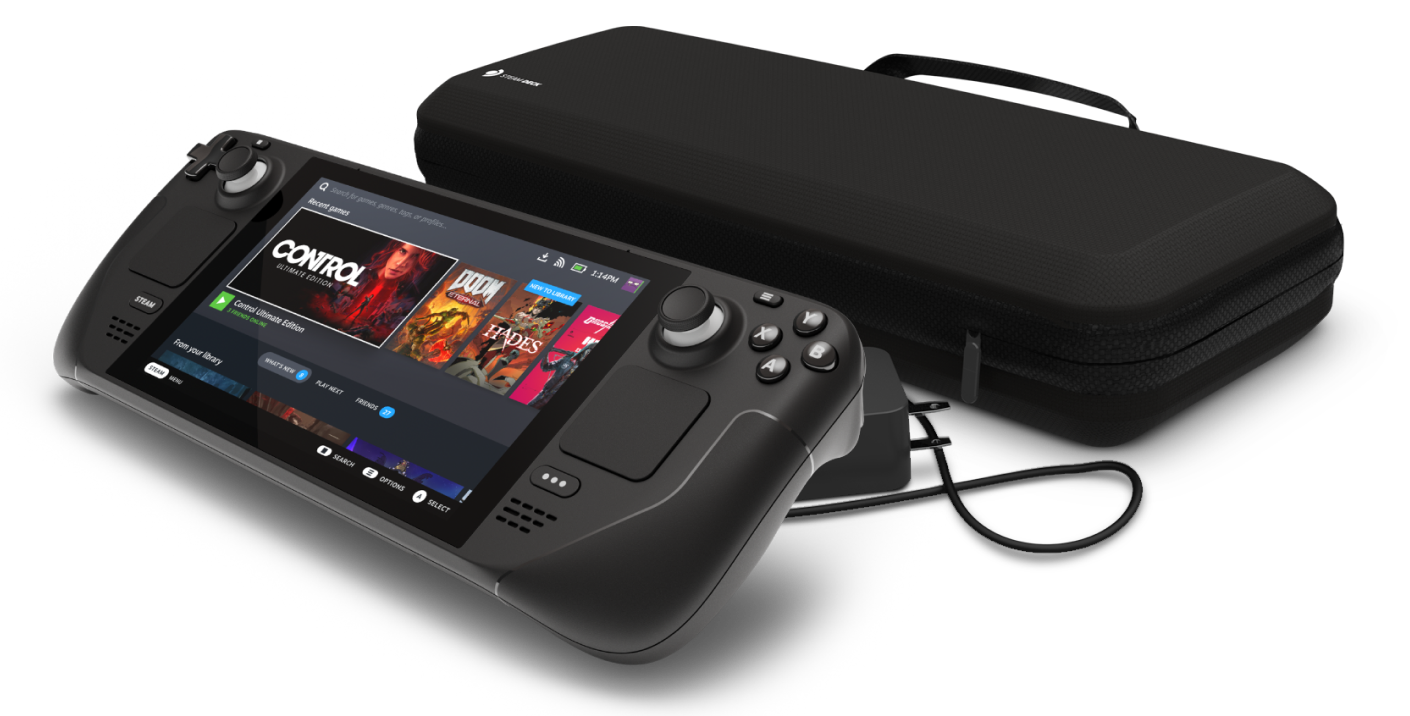Gaming
Steam gets PC gaming handheld, but …
The new Steam Deck handheld gaming console puts PC compatible hardware into a Nintendo Switch-like form factor. BRYAN TURNER investigates just how many games will work on this system.
Valve, the company behind the world’s largest PC gaming store, Steam, has released additional specifications to its website to show exactly what’s inside its latest console: the Steam Deck. The device is the most exciting ARM-based system announcement since the M1 Macs launched last year, and show just how ready the market is to leave x86 systems behind in the name of performance and battery life.
The main selling points of the device are its 7” touch screen, dual trackpads below the thumbsticks, and expandable I/O. The product’s site also revealed that the LPDDR5 memory in the system can run at up to 88 Gbps in quad-channel mode, which is extremely fast compared to similar handheld systems like the Nintendo Switch that runs at 25.6 Gbps. Most laptops since 2018 run at around 68 Gbps, so the Deck is beginning to look like a force to be reckoned with in the console market.
Out of the box, it runs Linux-based SteamOS. Any PC gamer would know that this is where all the problems start. As a Linux gamer myself, I’ve seen a huge uptick in support over the past three years, as Valve put a lot of effort into running Windows games through Proton – a mixture of tools like Wine and DXVK.
Although Windows can technically run on it, Windows on ARM systems is notoriously bad at running x86 programmes. Users will likely have a better experience sticking to SteamOS.
The issue is: Proton is not perfect. Some of Steam’s most popular games (like PUBG and Apex Legends) don’t even start on Linux systems. All big games that use Epic Games’ Easy Anti-Cheat system (like Fortnite and Tom Clancy’s The Division 2) will not run on the system until they receive updates for Linux. The landscape is looking pretty fragmented right now.
Some developers have thankfully had the foresight to use tools that enable a “write once, deploy everywhere” workflow, and have released the same game across platforms like Linux and Windows. Alien: Isolation is one such game, which performs just as well on Linux as it does on Windows.
The best way to see if the Steam Deck will be for you is to make an Ubuntu Live USB boot drive, install and sign into Steam, and click the Penguin in your library to reveal all the Linux native games. If there are a lot of games on the list, then the console is feasible. But if there aren’t, it’s a gamble to know whether games will run properly. To find out how well Windows-only games will run, visit ProtonDB and search for the games you wish to play on the Steam Deck.

At $399 for the baseline model with a modest 64GB of internal storage, the Steam Deck can be an attractive option for those who want a portable PC gaming experience – provided they play supported games.


















